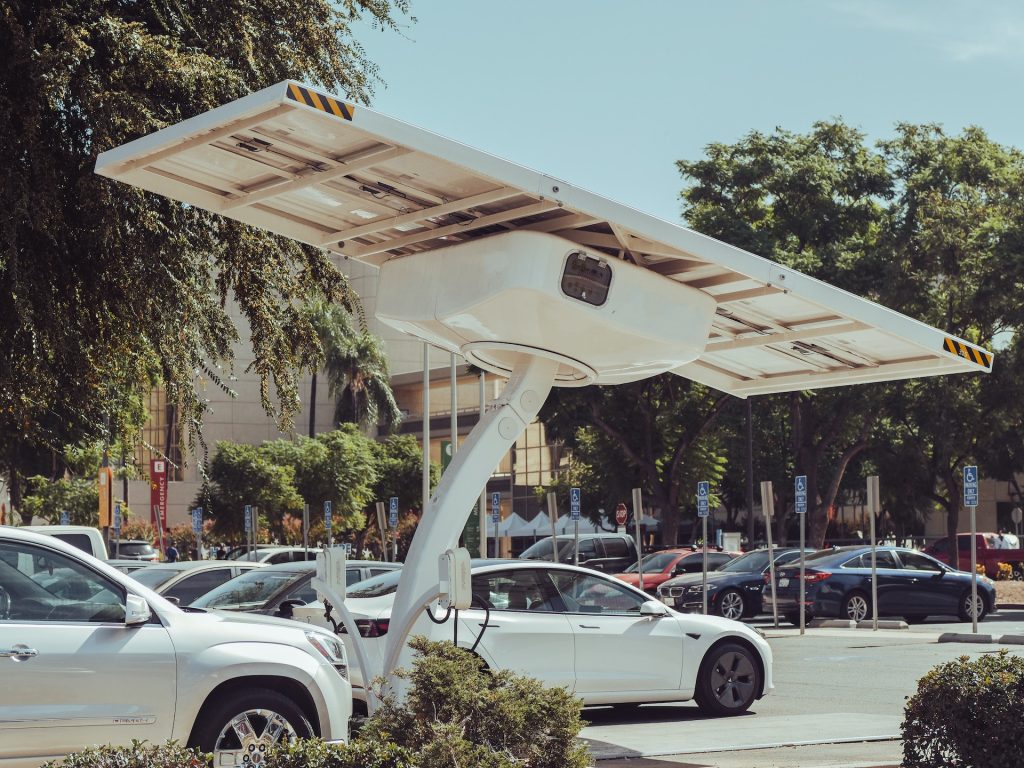Climate change is one of the most pressing issues of our time. It can be attributed to various human activities, from how we power our homes and businesses to how we get around. Even the simplest daily tasks, such as driving to work, can have an impact. But one of the most significant is the combustion of fossil fuels to power our vehicles. Cars and trucks produce about one-fifth of all man-made greenhouse gas emissions worldwide, and the transportation sector is the fastest-growing source of these emissions in the United States.
Logically, one way to help mitigate the effects of climate change is to drive a hybrid car. Hybrid cars are the modern-day version of the electric car, which has been around since the 19th century. This smart technology combines a gasoline engine with an electric battery and motor to produce a more fuel-efficient vehicle. It may just help save the world — one gallon of gasoline at a time.
- What Is Hybrid in a Car?
- How is a hybrid car better for the environment?
- What are the different kinds of hybrid vehicles?
- How should you choose a hybrid car?
- How much does a hybrid car cost?
- Should you buy a hybrid car instead of an electric car?
- What car manufacturers make hybrids?
- What are the most popular hybrid vehicles in 2022?
What Is Hybrid in a Car?
The term “hybrid” can refer to a vehicle that uses two different fuel sources, such as gasoline and electricity, or to a vehicle that uses two different types of propulsion, such as an internal combustion engine and battery-powered electric motors.
So a hybrid car is a vehicle that uses two or more sources of power to move. A common hybrid car typically uses both an electric motor and a gasoline engine. The gasoline engine does most of the work to make the car run, while the electric motor kicks in when more power is needed, such as when accelerating. The electric motor also helps the gasoline engine run more efficiently by providing power at lower speeds.
Electric motors are powered by batteries, which recharge as the car brakes or coasts downhill. Hybrid electric vehicles also use a regenerative braking system, which uses an electric generator to capture the energy that would otherwise be lost as heat and converts it into electricity to recharge the batteries. This means that the brakes on a hybrid car last longer than those on a gasoline-powered vehicle.
A hybrid vehicle usually gets better fuel economy than a gasoline-powered car since the electric traction motor uses less fuel than the engine. The average hybrid car gets about 50 miles per gallon, while the average gasoline car gets about 30 miles per gallon.
How is a hybrid car better for the environment?
A gas engine produces emissions that pollute the air we breathe and contribute to climate change. On the other hand, electric motors produce zero emissions. This means that hybrid cars have less of an impact on the environment than gasoline-powered cars.
While there are electric cars that produce no emissions, they can be expensive and have a limited range. Hybrid electric cars work using electric powertrains to help reduce emissions and improve fuel economy without sacrificing performance or range. Many hybrids can even run on electric power alone for short distances, making them true zero-emission vehicles during those trips. It allows the use of renewable energy solutions that are not possible with gasoline cars.
In addition, a hybrid electric vehicle uses less fuel than gasoline-powered cars, producing fewer emissions. Conventional cars produce emissions that include carbon dioxide (CO2), a greenhouse gas that contributes to climate change. But the average hybrid car emits about half the greenhouse gases of the average gasoline car.
Reducing emissions is one way to help mitigate the effects of climate change. Driving a hybrid car is one way you can make a difference.
What are the different kinds of hybrid vehicles?
Hybrid vehicles have different types distinguished by how they use the gasoline engine and electric motor. There are four main hybrids types: parallel hybrids, series hybrids, mild hybrids, and plug-in hybrids.
1. Parallel hybrid
Parallel hybrid cars are the most common type of hybrid. It has a gasoline engine and an electric motor, both of which can power the car independently. The motor and engine are usually connected to the transmission, so they can work together to power the car.
2. Series hybrid
In a series hybrid, the gasoline engine generates electricity that powers an electric motor. The motor is the only power source for the car, so the engine doesn’t need to be connected to the transmission.
3. Mild hybrid
Mild hybrid cars are similar to parallel hybrids, but the electric motor is smaller and can’t power the car independently. The electric motor only assists the gasoline engine to make it more efficient.
4. Plug-in hybrid
Finally, a plug-in hybrid has a larger battery than other hybrids. The battery can be plugged into an outlet to recharge, and the car can run on electric power alone for a certain distance. The gasoline engine will kick in to generate power when the energy stored in the battery is depleted.
How should you choose a hybrid car?
Hybrid cars are becoming more and more popular, so there are a lot of different models to choose from. Here are some things to keep in mind when choosing a hybrid car:
1. Fuel economy
One of the main reasons people choose hybrid cars is to save money on fuel. So, it’s essential to look at a car’s fuel economy rating to see how much fuel it will use. Ask the dealer for the car’s fuel economy rating, or look it up online.
2. Electric range
Check the electric range if you’re looking for a hybrid car that can run on electric power alone. This is the distance the vehicle can travel on electric power before the gasoline engine kicks in. Some hybrids have a longer electric range than others.
3. Price
Of course, you’ll also need to consider the price of the car. Hybrid cars can be more expensive than gasoline-powered cars, but they may save you money in the long run with better fuel economy. You can also get government incentives for buying a hybrid vehicle.
4. Size
Think about the size of the car you need. If you have a large family, you’ll need a bigger car than if you’re single or have a small family. Some hybrids are available in different sizes to accommodate different needs.
5. Safety
Finally, don’t forget to consider safety when choosing a hybrid car. All cars must meet specific safety standards, but some cars are safer than others. Look for a car with good safety ratings from organizations like the Insurance Institute for Highway Safety (IIHS).
How much does a hybrid car cost?
The price of a hybrid car depends on the make and model. Some hybrid vehicles are less expensive than gasoline-powered cars, while others are more expensive. The price also depends on the features and options you choose. For example, some hybrids have a longer electric range than others, which may raise the price.
The average price of a new hybrid car is about $27,000. The price of a used hybrid car depends on the year, make, and model. You can expect to pay between $15,000 and $30,000 for a used hybrid car.
Government incentives can also help offset the cost of a hybrid car. The United States offers a tax credit of up to $7,500 for hybrid and electric vehicles. Some states also offer additional incentives to encourage people to buy hybrid cars.
Should you buy a hybrid car instead of an electric car?
The answer to this question depends on your needs and preferences. Most electric cars have a shorter range than hybrids, so a hybrid might be a better option if you need a vehicle that can travel long distances without stopping to recharge. Hybrids also tend to be less expensive than electric cars, so they may be a better choice if you’re on a budget.
But if you’re looking for a car with zero emissions, an electric vehicle is the way to go. Electric cars don’t produce any pollution, while hybrids still produce some emissions from their gasoline engine. Electric cars are also becoming more and more popular, so you’ll have more models to choose from in the future.
What car manufacturers make hybrids?
If you’re thinking of buying a hybrid car, there are many manufacturers to choose from. Some popular brands include Toyota, Honda, Ford, Hyundai, and Kia. These companies offer a variety of hybrid models, so you can find one that meets your needs. You can also find hybrid SUVs and trucks if you need a larger vehicle.
Toyota manufactures the most hybrid models, with over 580,000 hybrids sold in 2021. The Toyota Prius is the best-selling hybrid car, with over a million units sold worldwide since it was introduced in 1997. Honda is the second-largest hybrid manufacturer in the country.
What are the most popular hybrid vehicles in 2022?
If you are ready to buy a hybrid car this year, you have many options to choose from. Here are some of the most popular hybrid models available:
1. Toyota Prius
As the best-selling hybrid car in the world, the Toyota Prius is a popular choice for many drivers. The Prius has excellent fuel economy and a spacious interior, making it a great option for families.
2. Honda Civic Hybrid
The Honda Civic Hybrid is popular for those who want a hybrid car with sporty performance. The Civic Hybrid has a sleek design and is available in sedan and coupe body styles.
3. Ford Fusion Hybrid
Some drivers prefer a hybrid car with a more luxurious feel, and the Ford Fusion Hybrid fits that bill. The newer Fusion Hybrid model has a spacious interior and is available with features like heated seats and a sunroof.
4. Hyundai Sonata Hybrid
The Hyundai Sonata Hybrid is an excellent choice for drivers who want a hybrid car with plenty of features. The Sonata Hybrid comes standard with automatic headlights, lane-keeping assist, and a Blind Spot Detection system.
5. Kia Niro
Lastly, the Kia Niro is a hybrid SUV that has become popular for its stylish design and spacious interior. The Niro also has improved fuel economy, with an EPA-estimated 53 mpg in the city and 48 mpg on the highway.
Hybrid cars are becoming more popular every year, and there are many great options to choose from. With so many models available, you’re sure to find a hybrid car that’s perfect for you. If you want more fuel savings or to reduce your environmental impact, a hybrid car is a great choice.






